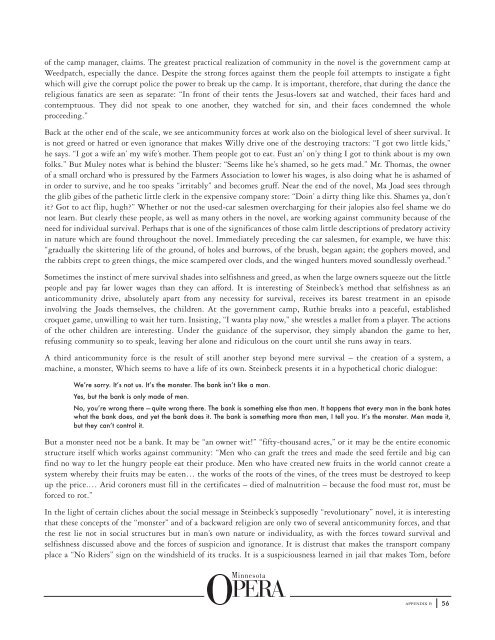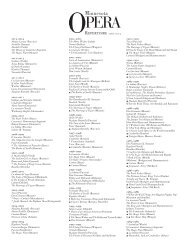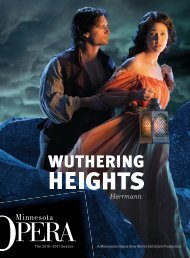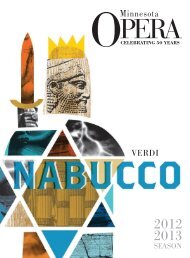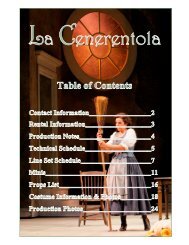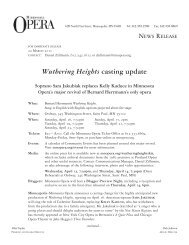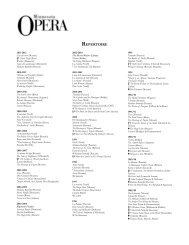Create successful ePaper yourself
Turn your PDF publications into a flip-book with our unique Google optimized e-Paper software.
of the camp manager, claims. The greatest practical realization of community in the novel is the government camp at<br />
Weedpatch, especially the dance. Despite the strong forces against them the people foil attempts to instigate a fight<br />
which will give the corrupt police the power to break up the camp. It is important, therefore, that during the dance the<br />
religious fanatics are seen as separate: “In front of their tents the Jesus-lovers sat and watched, their faces hard and<br />
contemptuous. They did not speak to one another, they watched for sin, and their faces condemned the whole<br />
proceeding.”<br />
Back at the other end of the scale, we see anticommunity forces at work also on the biological level of sheer survival. It<br />
is not greed or hatred or even ignorance that makes Willy drive one of the destroying tractors: “I got two little kids,”<br />
he says. “I got a wife an’ my wife’s mother. Them people got to eat. Fust an’ on’y thing I got to think about is my own<br />
folks.” But Muley notes what is behind the bluster: “Seems like he’s shamed, so he gets mad.” Mr. Thomas, the owner<br />
of a small orchard who is pressured by the Farmers Association to lower his wages, is also doing what he is ashamed of<br />
in order to survive, and he too speaks “irritably” and becomes gruff. Near the end of the novel, Ma Joad sees through<br />
the glib gibes of the pathetic little clerk in the expensive company store: “Doin’ a dirty thing like this. Shames ya, don’t<br />
it? Got to act flip, hugh?” Whether or not the used-car salesmen overcharging for their jalopies also feel shame we do<br />
not learn. But clearly these people, as well as many others in the novel, are working against community because of the<br />
need for individual survival. Perhaps that is one of the significances of those calm little descriptions of predatory activity<br />
in nature which are found throughout the novel. Immediately preceding the car salesmen, for example, we have this:<br />
“gradually the skittering life of the ground, of holes and burrows, of the brush, began again; the gophers moved, and<br />
the rabbits crept to green things, the mice scampered over clods, and the winged hunters moved soundlessly overhead.”<br />
Sometimes the instinct of mere survival shades into selfishness and greed, as when the large owners squeeze out the little<br />
people and pay far lower wages than they can afford. It is interesting of Steinbeck’s method that selfishness as an<br />
anticommunity drive, absolutely apart from any necessity for survival, receives its barest treatment in an episode<br />
involving the Joads themselves, the children. At the government camp, Ruthie breaks into a peaceful, established<br />
croquet game, unwilling to wait her turn. Insisting, “I wanta play now,” she wrestles a mallet from a player. The actions<br />
of the other children are interesting. Under the guidance of the supervisor, they simply abandon the game to her,<br />
refusing community so to speak, leaving her alone and ridiculous on the court until she runs away in tears.<br />
A third anticommunity force is the result of still another step beyond mere survival – the creation of a system, a<br />
machine, a monster, Which seems to have a life of its own. Steinbeck presents it in a hypothetical choric dialogue:<br />
We’re sorry. It’s not us. It’s the monster. The bank isn’t like a man.<br />
Yes, but the bank is only made of men.<br />
No, you’re wrong there — quite wrong there. The bank is something else than men. It happens that every man in the bank hates<br />
what the bank does, and yet the bank does it. The bank is something more than men, I tell you. It’s the monster. Men made it,<br />
but they can’t control it.<br />
But a monster need not be a bank. It may be “an owner wit!” “fifty-thousand acres,” or it may be the entire economic<br />
structure itself which works against community: “Men who can graft the trees and made the seed fertile and big can<br />
find no way to let the hungry people eat their produce. Men who have created new fruits in the world cannot create a<br />
system whereby their fruits may be eaten… the works of the roots of the vines, of the trees must be destroyed to keep<br />
up the price.… Arid coroners must fill in the certificates – died of malnutrition – because the food must rot, must be<br />
forced to rot.”<br />
In the light of certain cliches about the social message in Steinbeck’s supposedly “revolutionary” novel, it is interesting<br />
that these concepts of the “monster” and of a backward religion are only two of several anticommunity forces, and that<br />
the rest lie not in social structures but in man’s own nature or individuality, as with the forces toward survival and<br />
selfishness discussed above and the forces of suspicion and ignorance. It is distrust that makes the transport company<br />
place a “No Riders” sign on the windshield of its trucks. It is a suspiciousness learned in jail that makes Tom, before<br />
appendix b<br />
56


